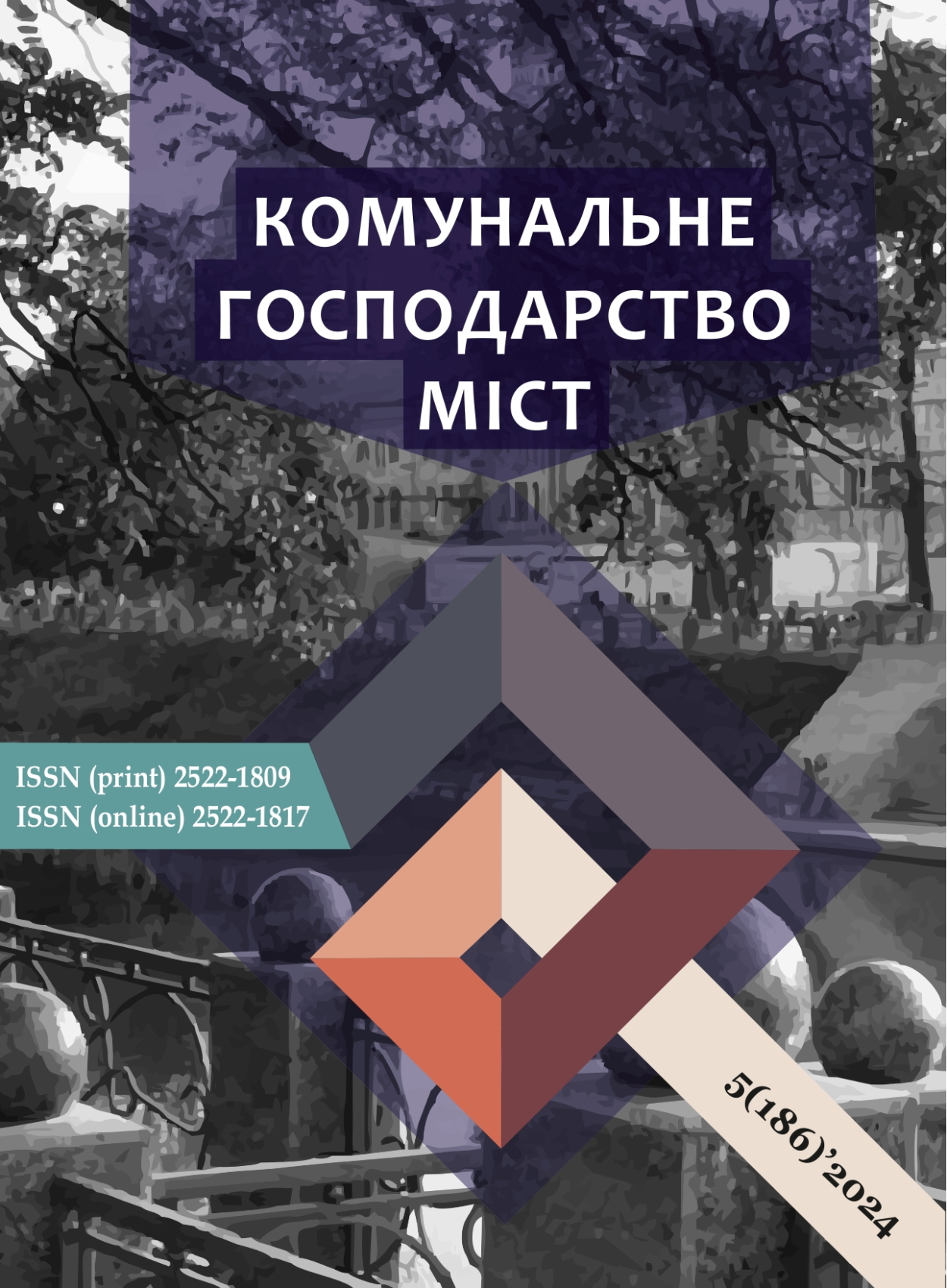STAKEHOLDER-ORIENTED APPROACH TO THE FORMATION OF AN INTELLIGENT ECONOMIC SYSTEM OF CONSTRUCTION ENTERPRISES
DOI:
https://doi.org/10.33042/2522-1809-2024-5-186-2-6Keywords:
construction enterprises, stakeholders, stakeholder-oriented approach, intelligent economic system, economic and mathematical modellingAbstract
Forming modern systems of construction enterprises’ functioning requires rethinking approaches to using innovative tools that account for the features and level of stakeholder interaction. In this context, developing and implementing a stakeholder-oriented approach to forming an intelligent economic system of construction enterprises is particularly relevant.
The research aims to develop a stakeholder-oriented approach to forming an intelligent economic system of construction enterprises. To achieve the goal, the authors solve the following tasks: defining the intelligent economic system of construction enterprises, characterising the stakeholders influencing the formation of the intelligent economic system of construction enterprises, and justifying a stakeholder-oriented approach to the formation of an intelligent economic system of construction enterprises.
We propose to define the intelligent economic system of construction enterprises as a set of economic, geospatial, safety, and social components that are developed by applying modern mathematical methods and models, artificial intelligence, information, and analytical support and tools and form the basis for making management decisions in the context of the development of construction enterprises.
The research substantiated the theoretical propositions for defining the intelligent economic system of construction enterprises as an innovative complex toolkit affecting their development. In addition, it established that stakeholders and their level of interaction influence the formation of an intelligent economic system of construction enterprises.
As a result, we proposed a stakeholder-oriented approach to the formation of an intelligent economic system of construction enterprises, determined by a complex of interdependent stages based on a set of informational and analytical and regulatory and legal support, methods, and models, which is aimed at the formation of partner stakeholder relations to ensure the development of construction enterprises.
References
Intelligent systems. https://zp.edu.ua/intelektualni-systemy [in Ukrainian]
Nesterenko, O. V., Kovtunets, O. V. & Falovskyi, O. O. (2017) Intellectual systems and technologies. National Academy of Management.
Dovbysh, A. S. (2009) Fundamentals of designing intelligent systems. Sumy State University.
Goldberg, D. E. (1989) Genetic Algorithms in Search, Optimisation and Machine Learning. Wesley Publshing Company, Inc.
Spirin, O. M. (2004) Beginnings of artificial intelligence. Zhytomyr: ZhDU.
Gagarin, O. O., Haydarzhi, V. I. & Tytenko, S. V. (2006) A conceptual approach to the presentation of knowledge in an intellectual educational system. Current trend in the development of information technologies in science, education and economy: Materials of the All-Ukrainian Scientific and Practical Conference. Luhansk: Alma Mater.
Kryvenko, L. & Kryvenko, S. (2014) Organization of business structures in the context of sustainable development. National economy. TNEU Bulletin 4, 51–62. http://dspace.wunu.edu.ua/bitstream/316497/4780/1/Kryvenko%20Л..pdf [in Ukrainian]
Mamonov, K. A. & Velуchko, V. A. (2020) Practical aspects of ensuring the interaction of stakeholders of construction enterprises. State and regions. Series: Economics and entrepreneurship, 3 (1), 117–121.
Donaldson, T. & Preston L. (1997) The stakeholder theory of the Corporation: concepts, evidence, and implications. Academy of Management Review. 1, 65–66.
Freeman, E. (1984) Strategic Management: А Stakeholder Approach. Pitman, Boston.
Mitchell, R. K., Agle, B. R. & Wood, D. J. (1997) Toward a theory of stakeholder identification and salience: defining the principle of who and what really counts. Academy of Management Review. 22(4), 853–886.
Downloads
Published
How to Cite
Issue
Section
License
The authors who publish in this collection agree with the following terms:
• The authors reserve the right to authorship of their work and give the magazine the right to first publish this work under the terms of license CC BY-NC-ND 4.0 (with the Designation of Authorship - Non-Commercial - Without Derivatives 4.0 International), which allows others to freely distribute the published work with a mandatory reference to the authors of the original work and the first publication of the work in this magazine.
• Authors have the right to make independent extra-exclusive work agreements in the form in which they were published by this magazine (for example, posting work in an electronic repository of an institution or publishing as part of a monograph), provided that the link to the first publication of the work in this journal is maintained. .
• Journal policy allows and encourages the publication of manuscripts on the Internet (for example, in institutions' repositories or on personal websites), both before the publication of this manuscript and during its editorial work, as it contributes to the emergence of productive scientific discussion and positively affects the efficiency and dynamics of the citation of the published work (see The Effect of Open Access).

